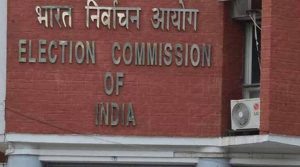A judge has stopped the application of the Civil Rights Act in a pollution case in Louisiana's 'Cancer Alley'.
Judge blocks Civil Rights Act enforcement in Louisiana pollution case, despite reports of pollution's impact on marginalized communities.

A recent ruling in Louisiana has stirred up controversy as a federal judge barred the Environmental Protection Agency and the Department of Justice from enforcing Title VI of the Civil Rights Act on behalf of the residents of St. John's Parish. This decision has received criticism, particularly due to the fact that it affects the residents of "Cancer Alley," an area known for its high rates of cancer caused by petrochemical plants. Despite the clear disparities in health outcomes, Judge James D. Cain stated that the residents are not eligible for protection under Title VI because race was a factor in the lawsuit.
The civil rights suit was originally brought forth by Earthjustice on behalf of the St. John's Parish residents in 2022. Speaking on the recent ruling, Earthjustice's senior vice president of programs, Sam Sankar, expressed disappointment, stating, "The court's decision to issue this injunction is bad enough, but what's worse is that instead of fixing the discriminatory permitting programs that have created sacrifice zones like Cancer Alley, Louisiana is fighting tooth and nail to keep them in place."
Sankar also emphasized the importance of Title VI in addressing environmental injustice, stating, "The public health crisis in St. John the Baptist Parish shows us why we need Title VI: EPA needs to be able to use our civil rights laws to stop states from running permitting programs that perpetuate environmental injustice."
However, Judge Cain, who was appointed by former President Trump, argued that "pollution does not discriminate" and that considering race in enforcement decisions is a form of racism. This stance has sparked outrage, especially in light of reports indicating a disproportionate impact of carcinogens on communities of color.
According to estimates by Propublica, the risk of cancer faced by residents in this area of Louisiana is up to 47 times higher than what the EPA considers acceptable. Unfortunately, Louisiana is not the only state opposing efforts to address the discriminatory effects of carcinogenic air pollution. In 2023, Texas's environmental protection agency announced that it would not engage in negotiations with the EPA, citing the closure of their investigation into "Cancer Alley."
Christian D. Menefee, the Harris County Attorney, expressed concern about the situation, describing it as "egregious" and hoping for EPA intervention. He also highlighted the vulnerability of states like Texas, where the environmental regulatory body has allowed industries to have free rein. Menefee stated, "That last line of protection is going to be the EPA."
In a 2015 analysis, the Center for Public Integrity found that the EPA often neglected to investigate Title VI complaints from communities of color affected by environmental racism, leaving them to fend for themselves. This recent ruling and the Trump-appointed judge's stance serve as a reminder of the agency's past protocol in addressing these issues.
The impact of environmental racism on communities of color is a pressing issue, and it is crucial for the EPA to take action to protect these communities. As highlighted by The Intercept, the current pattern of bringing investigations and subsequently dropping them when challenged by Republican governors or state entities is not a new phenomenon, but rather a return to the agency's previous practices. It is time for the EPA to prioritize the health and well-being of all communities, regardless of their race or political affiliations.
18 Views










